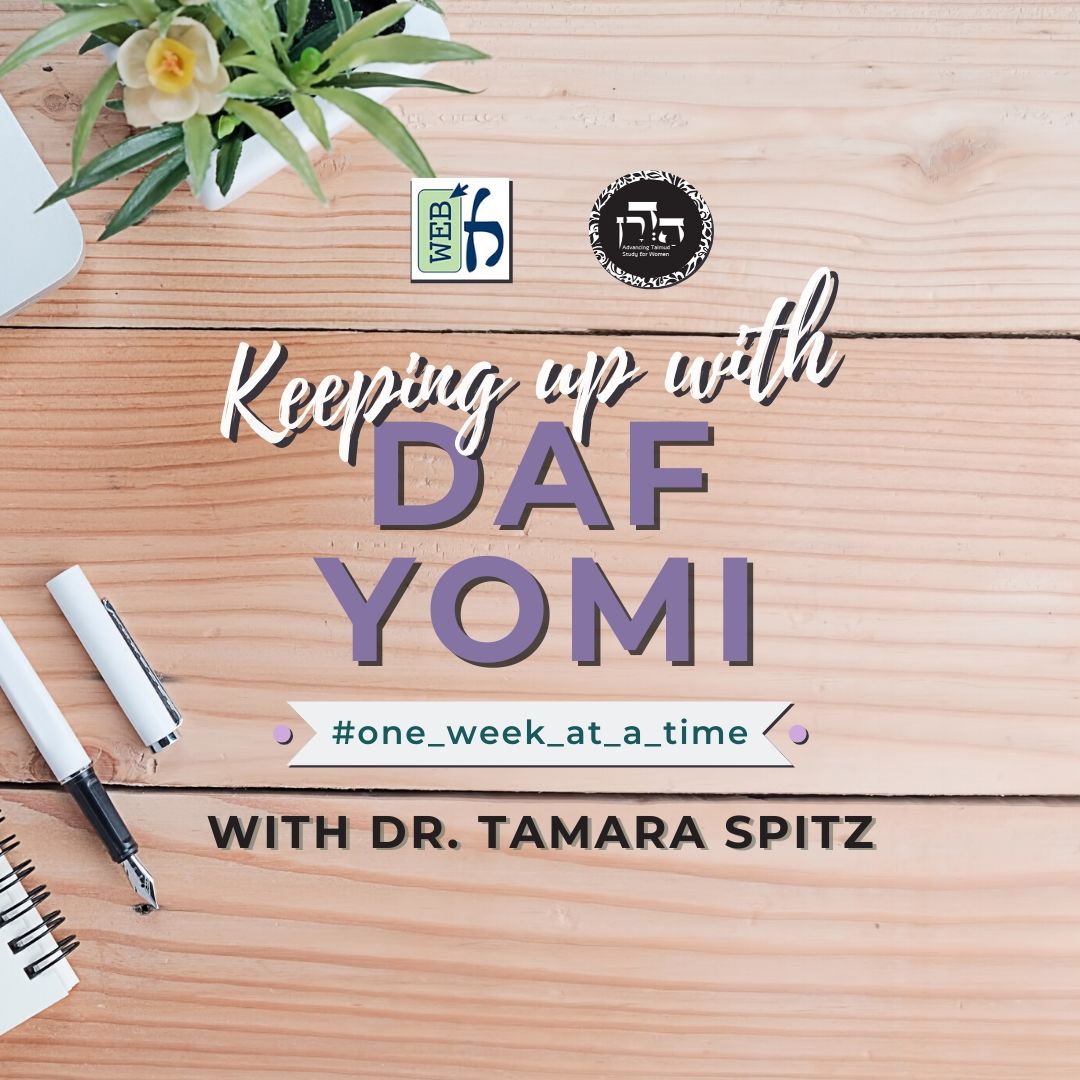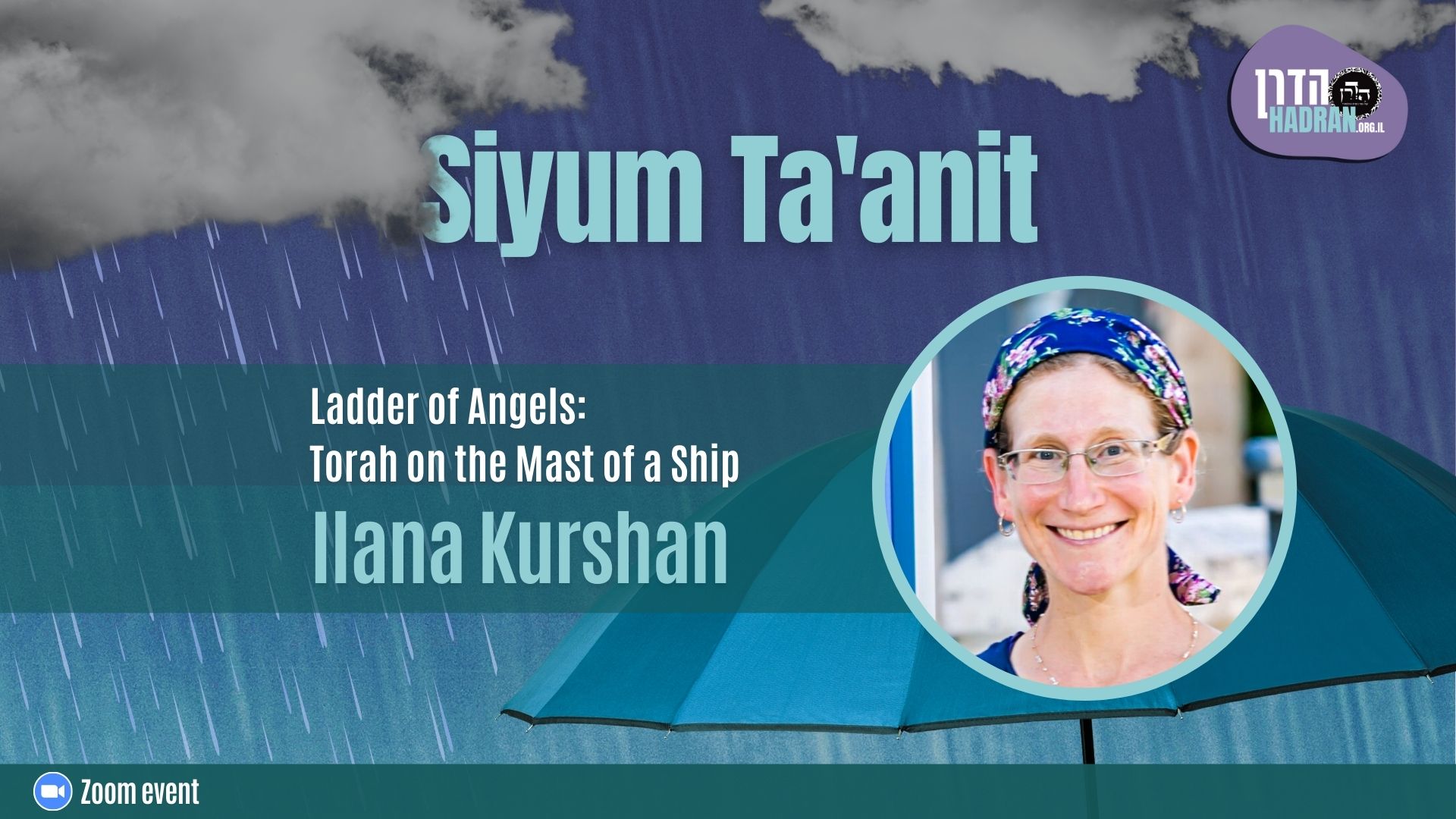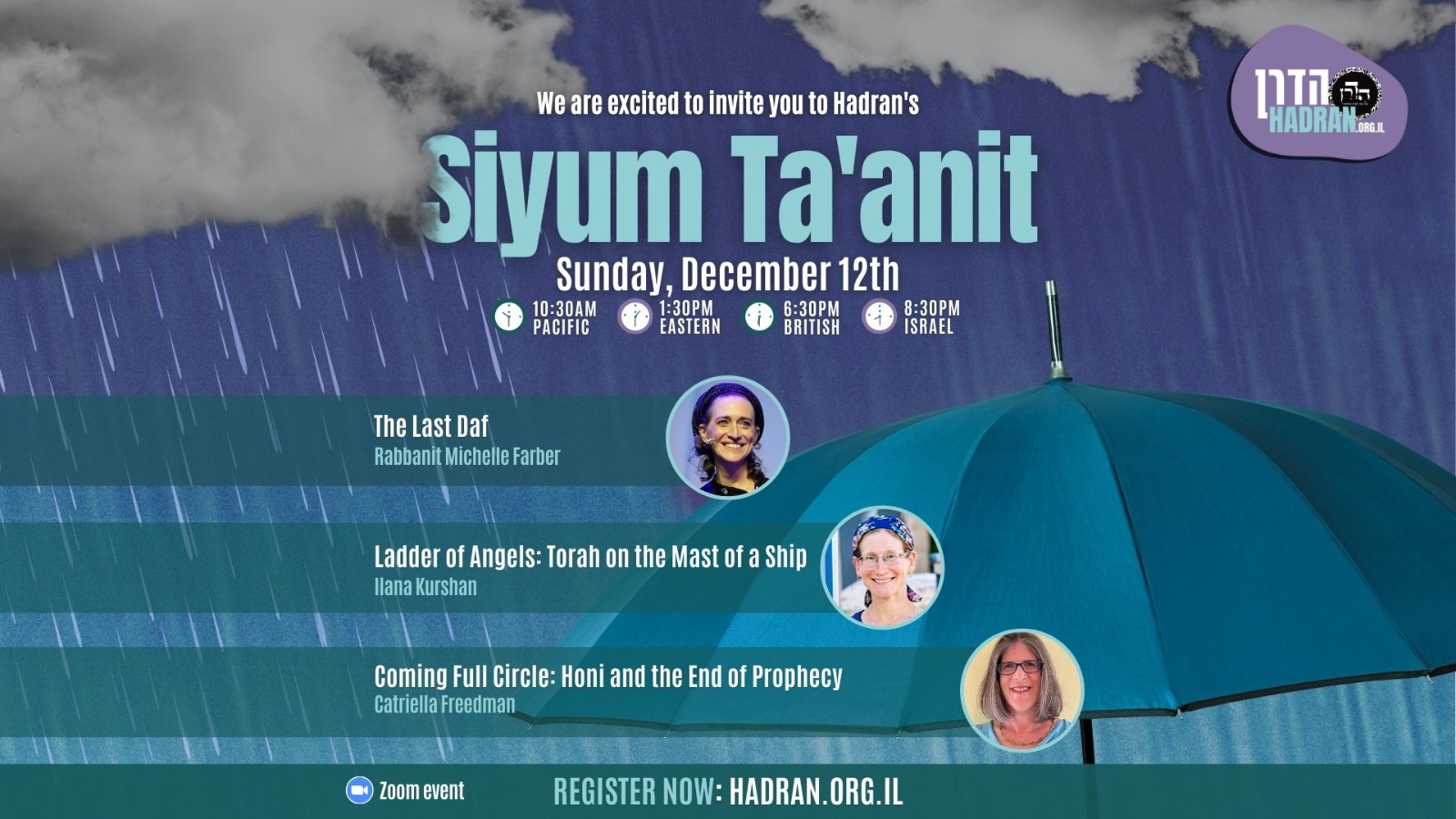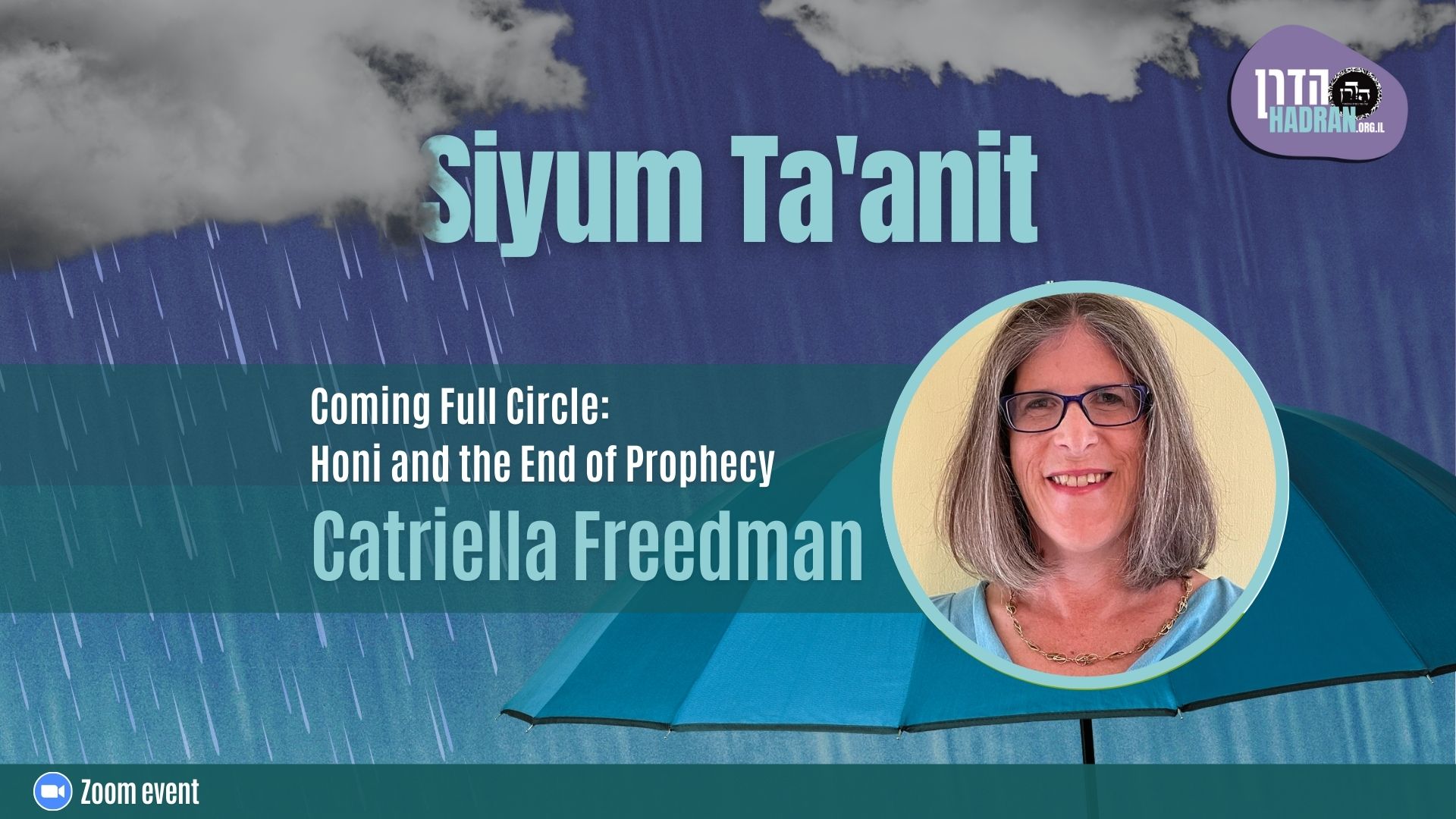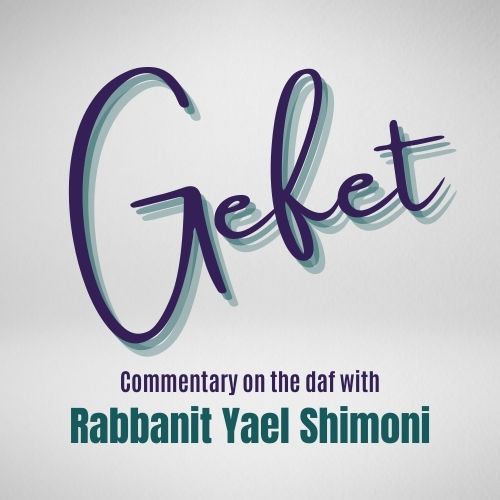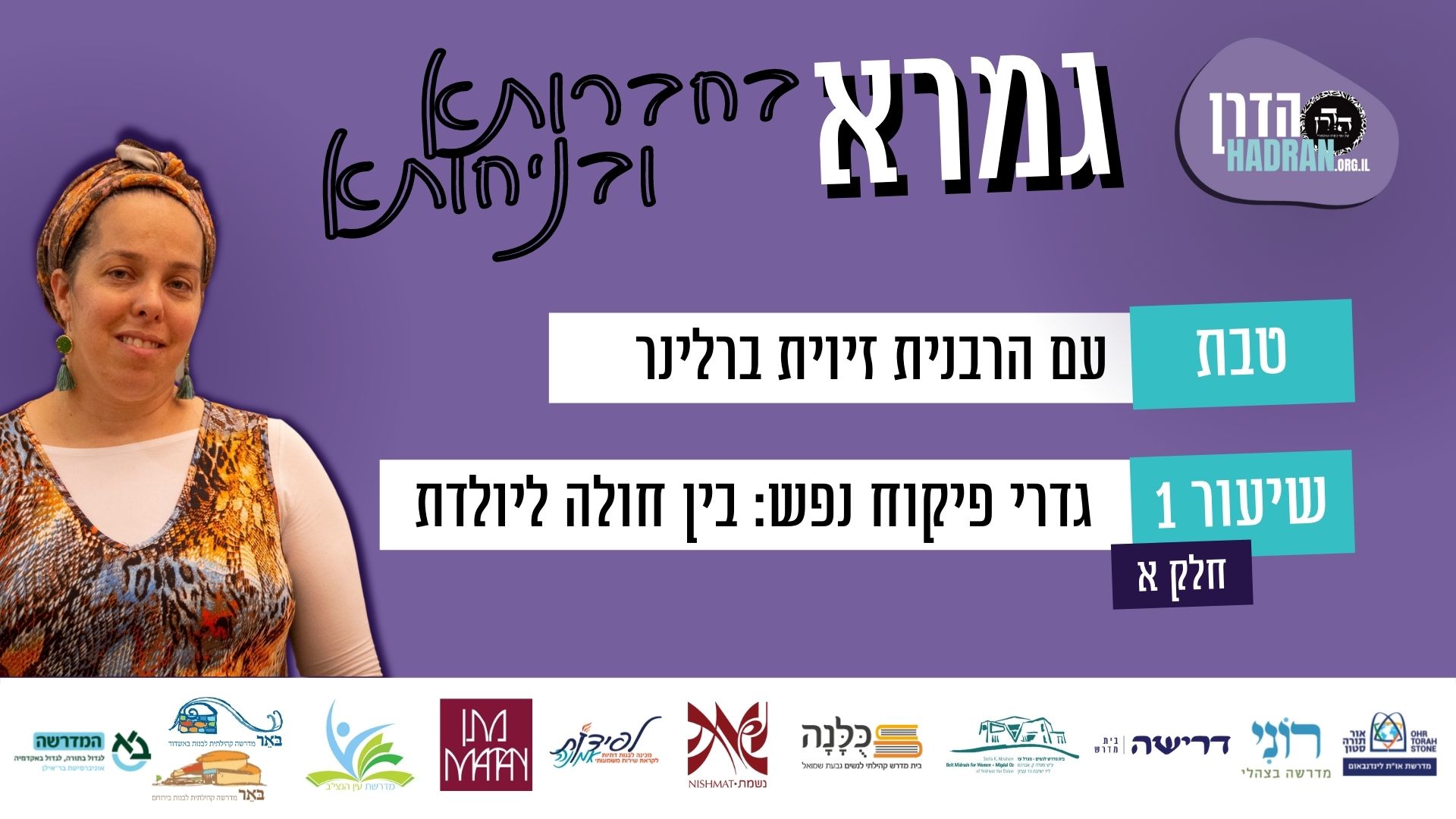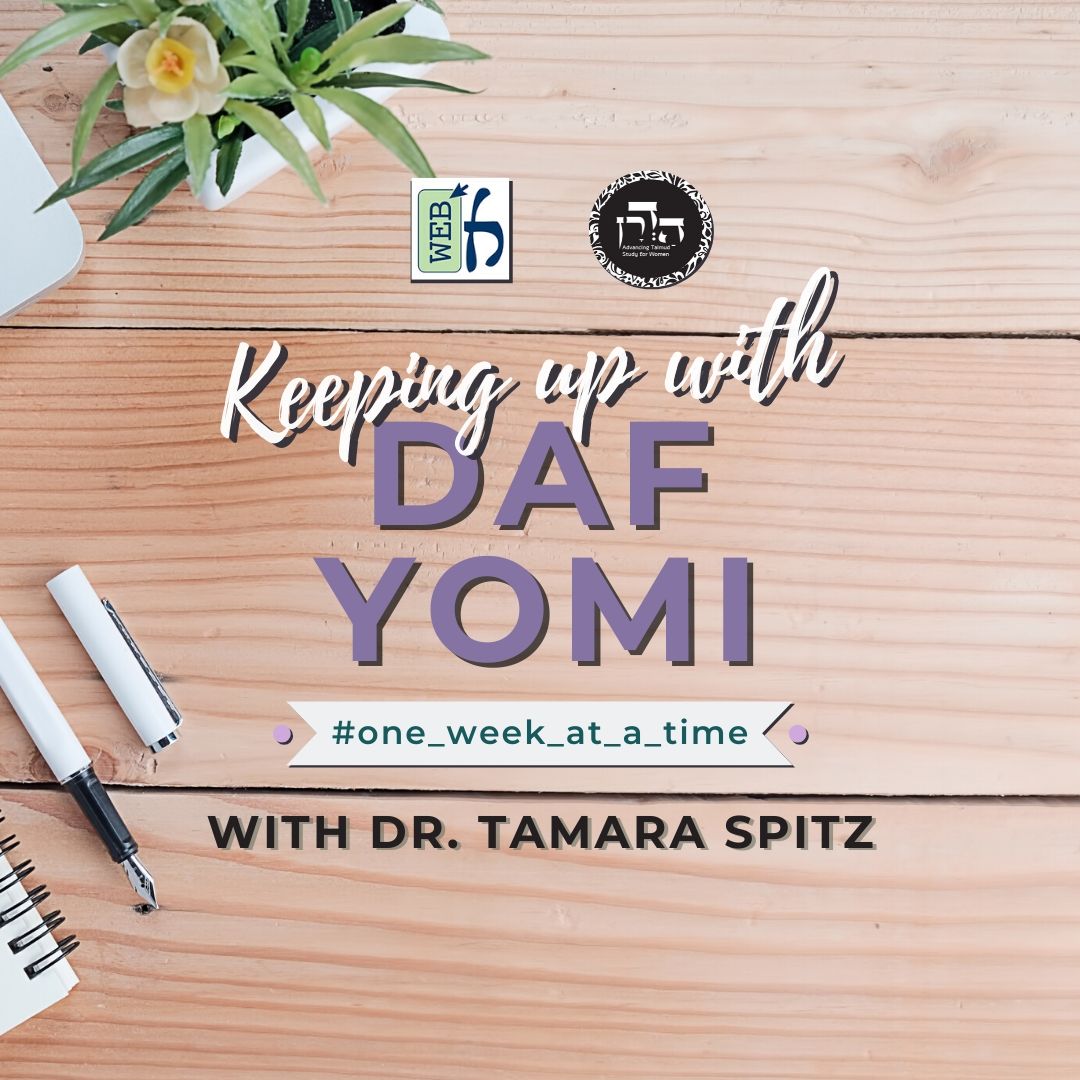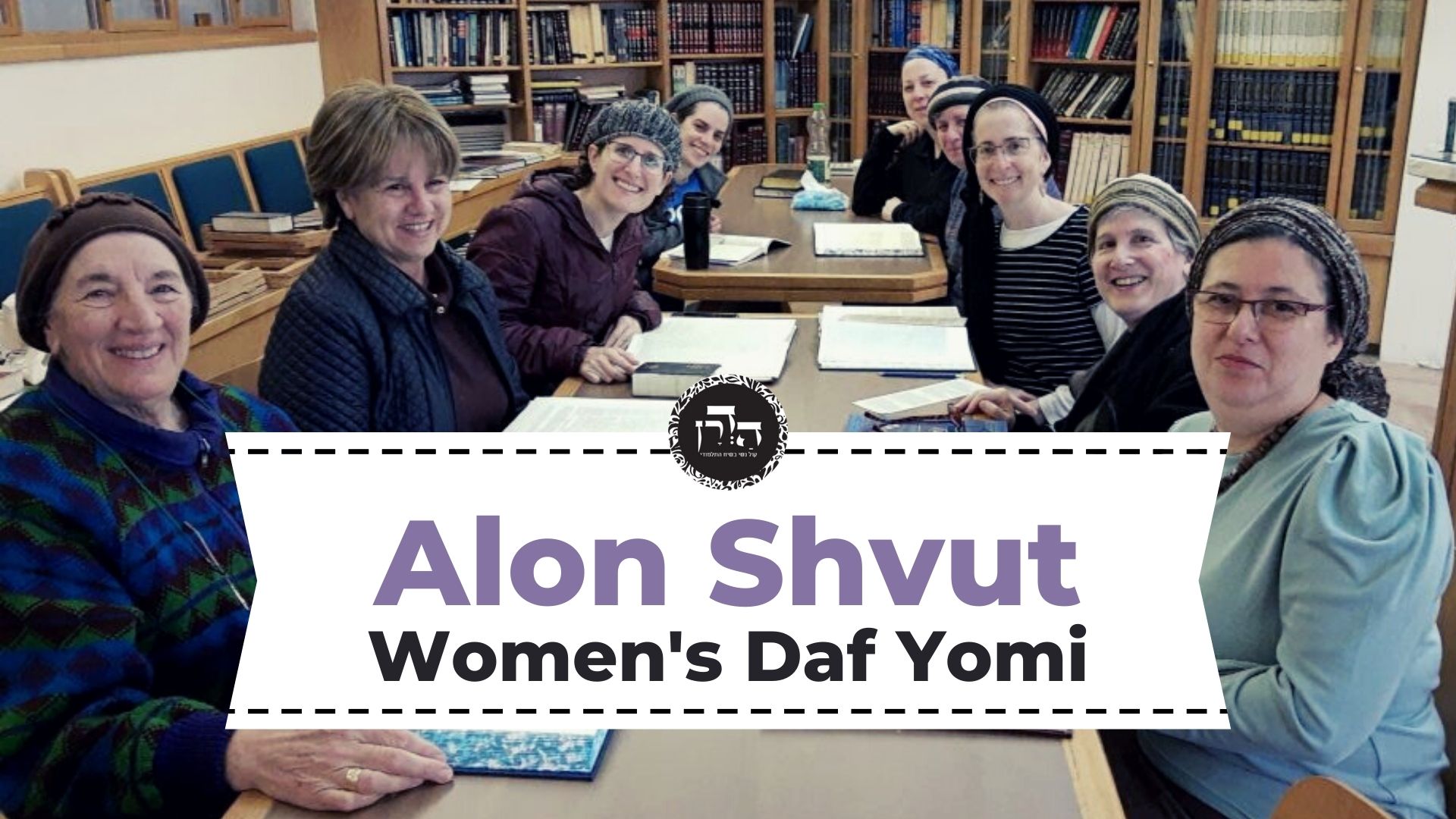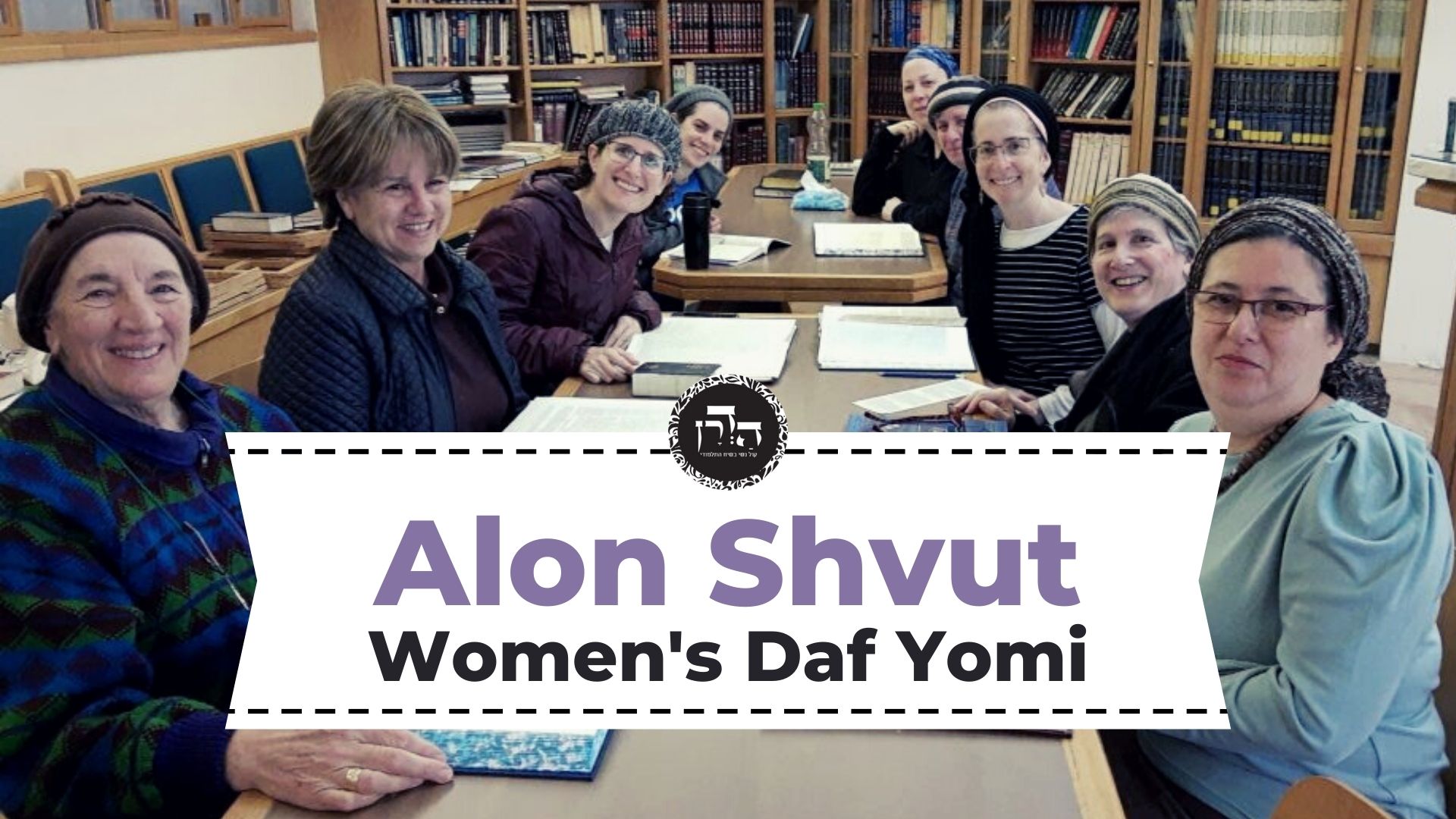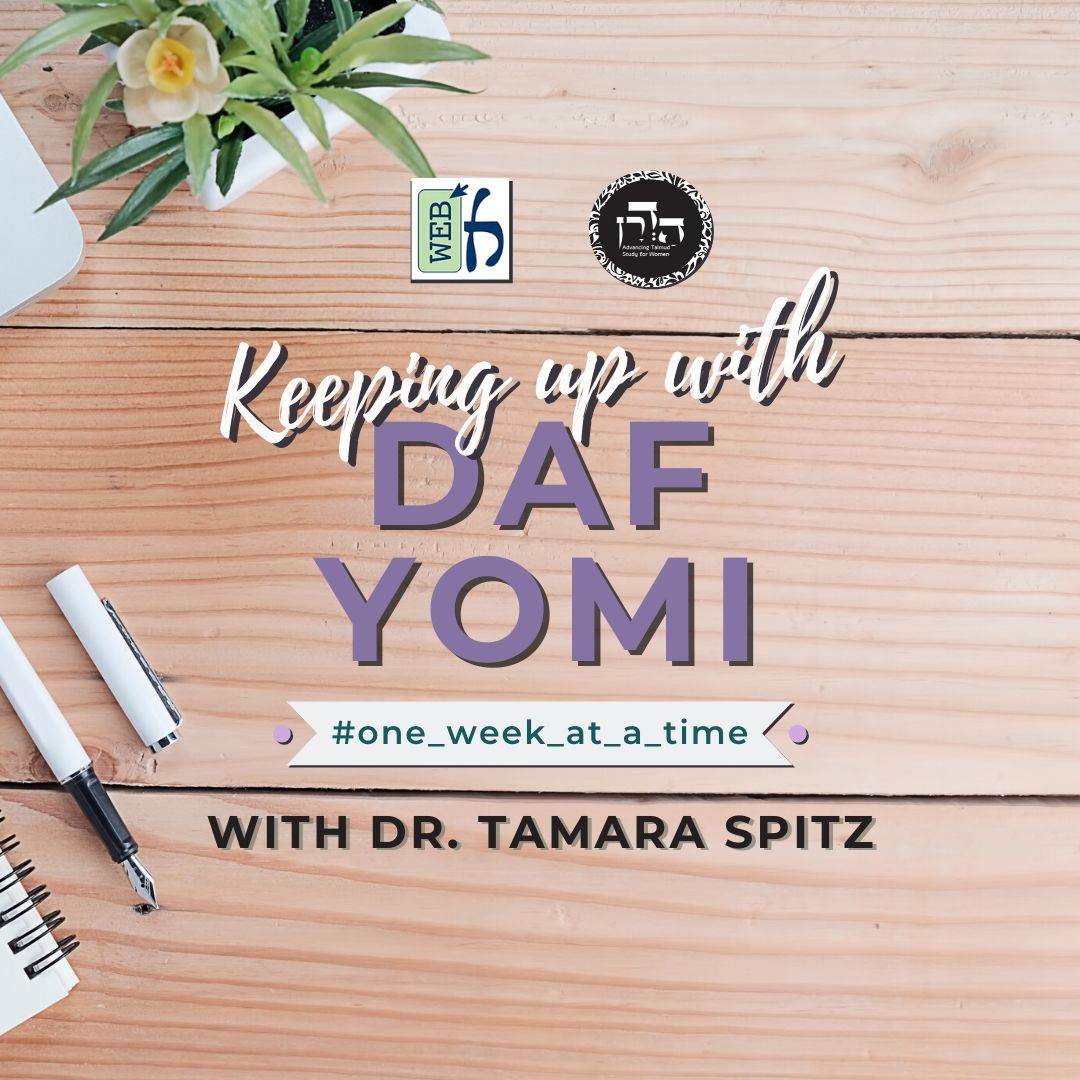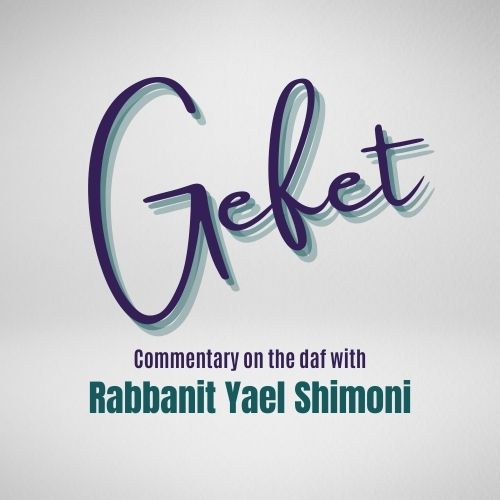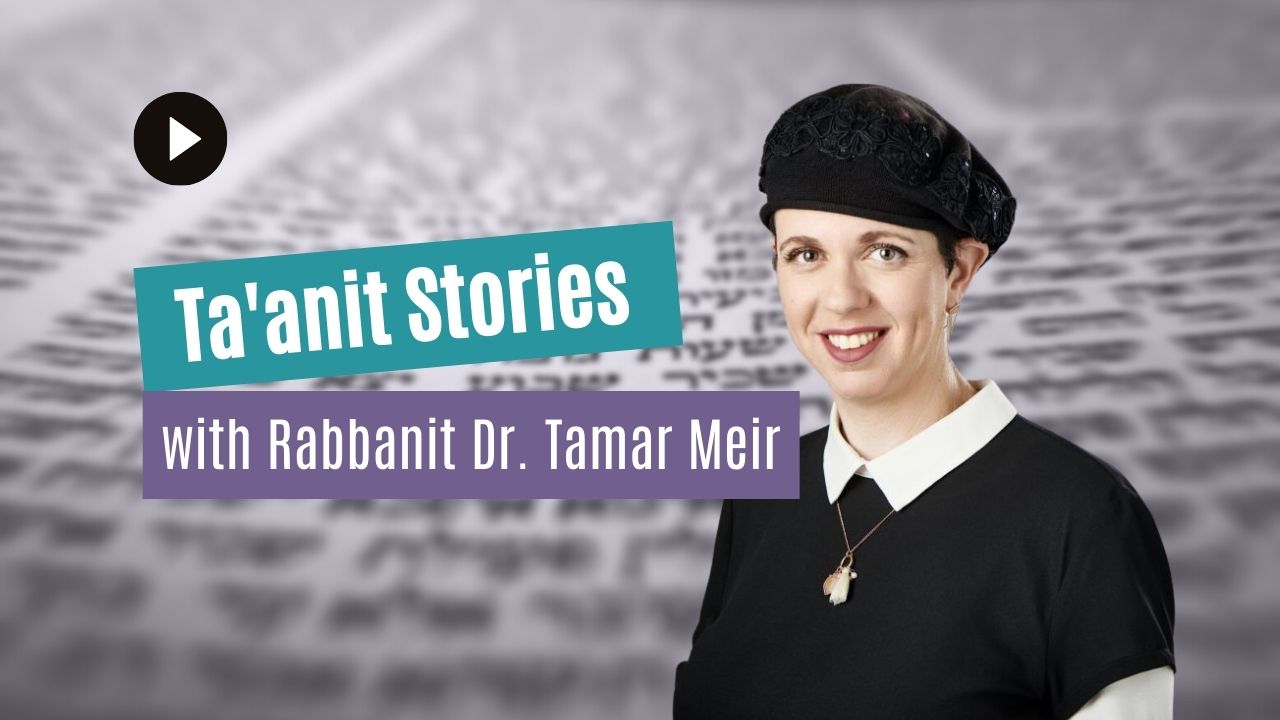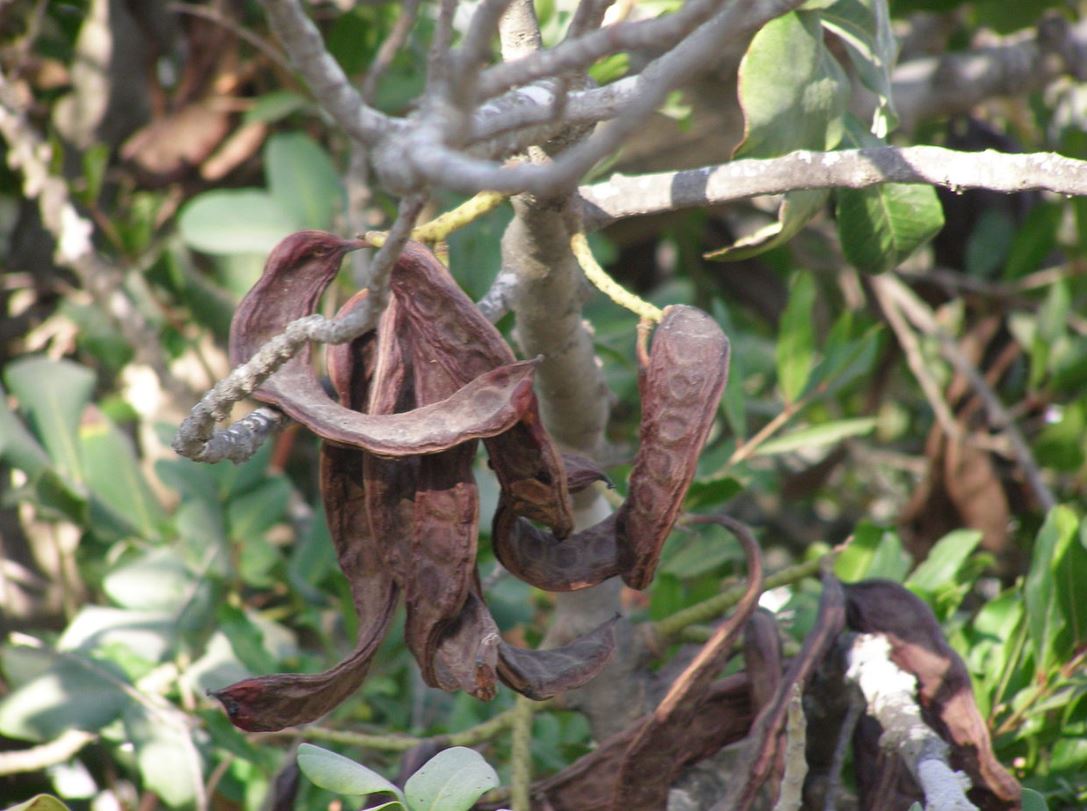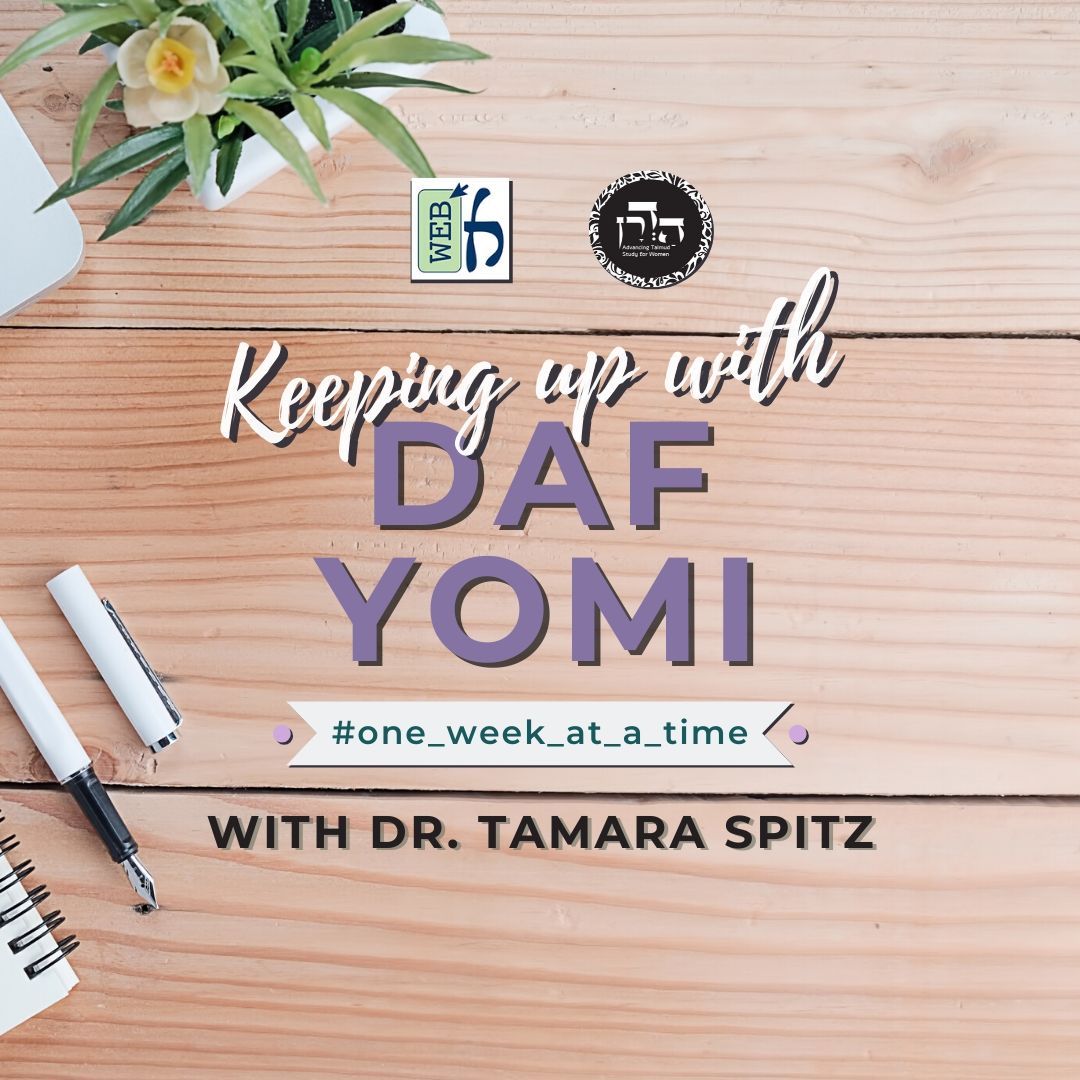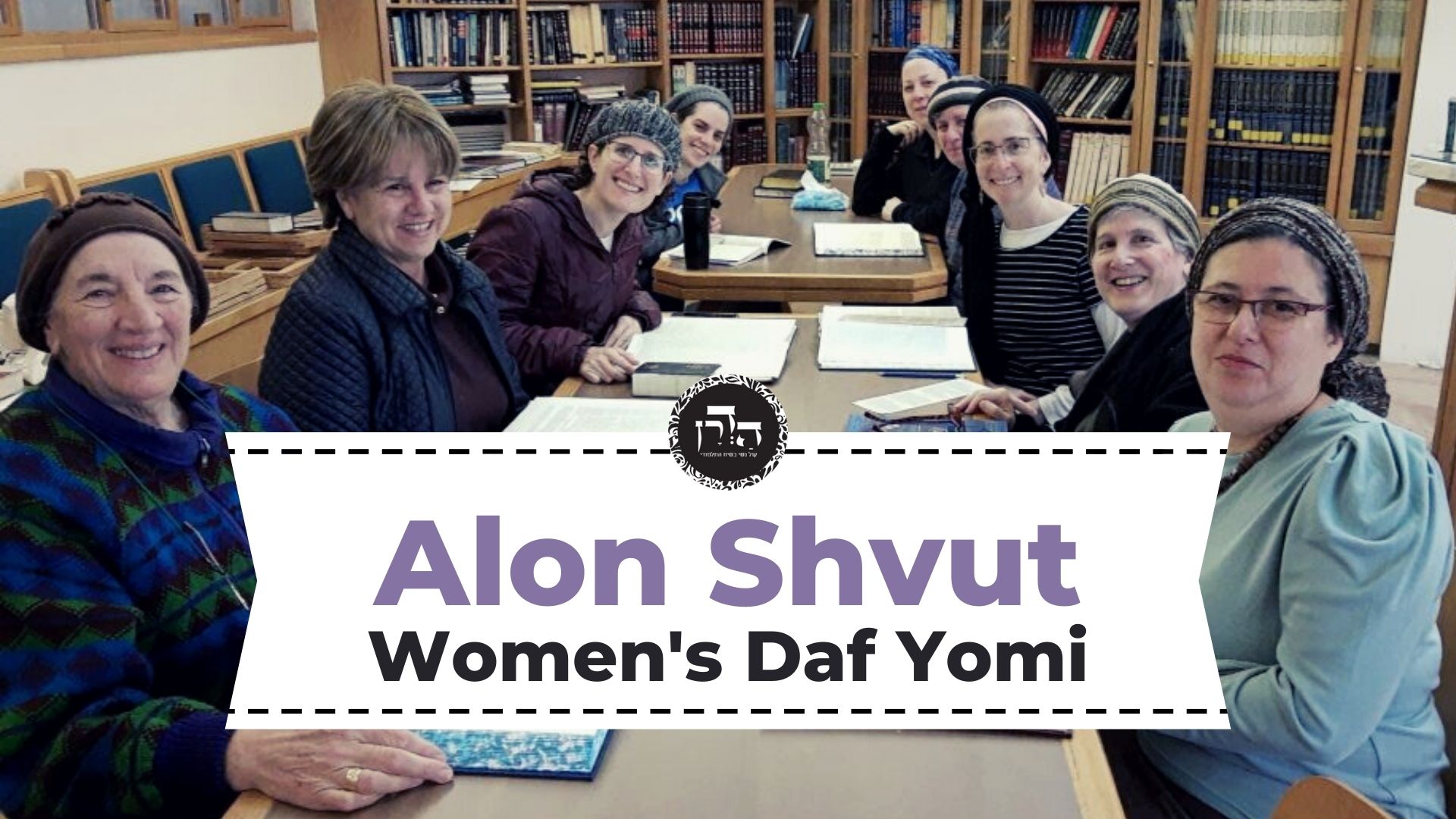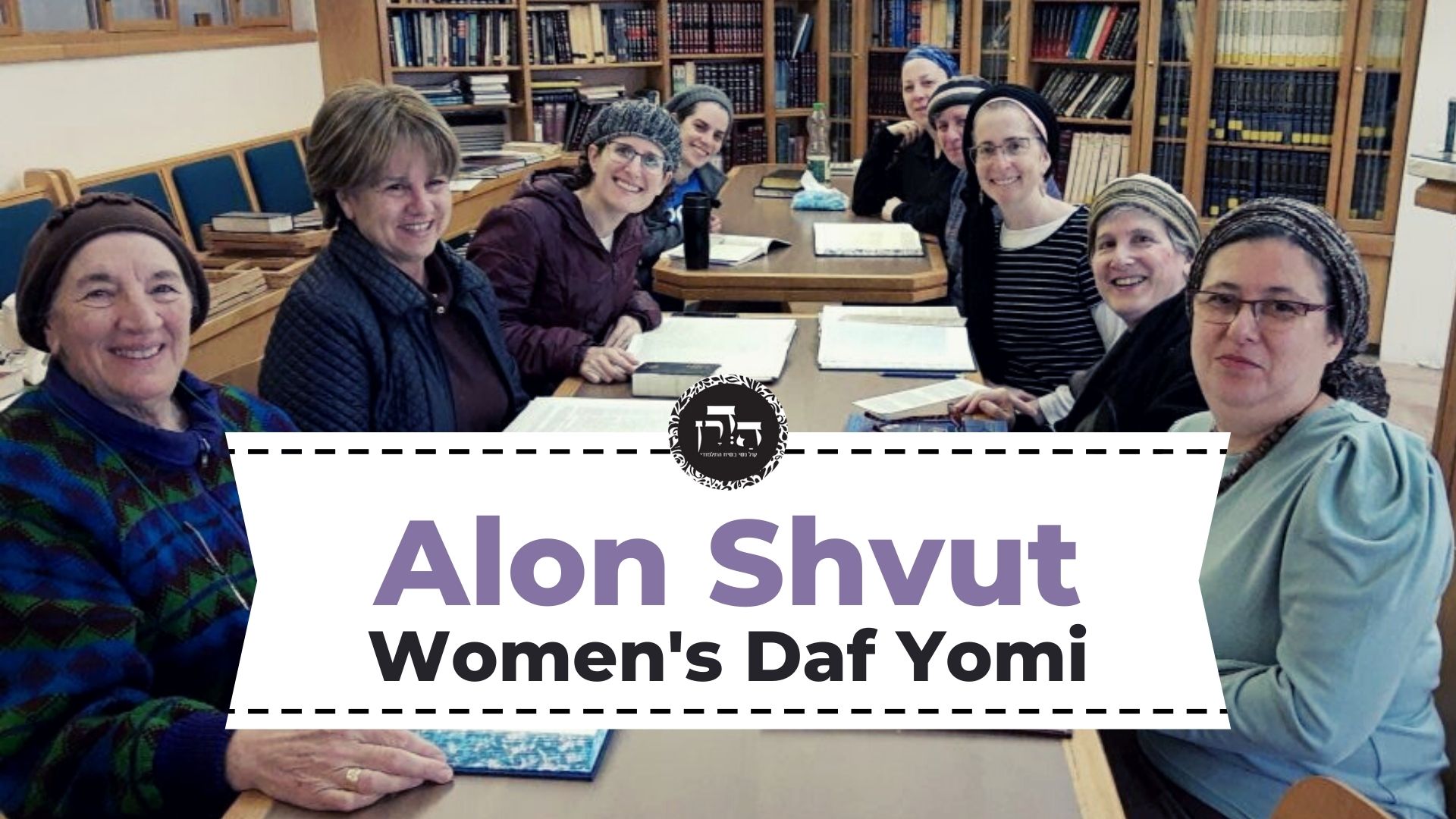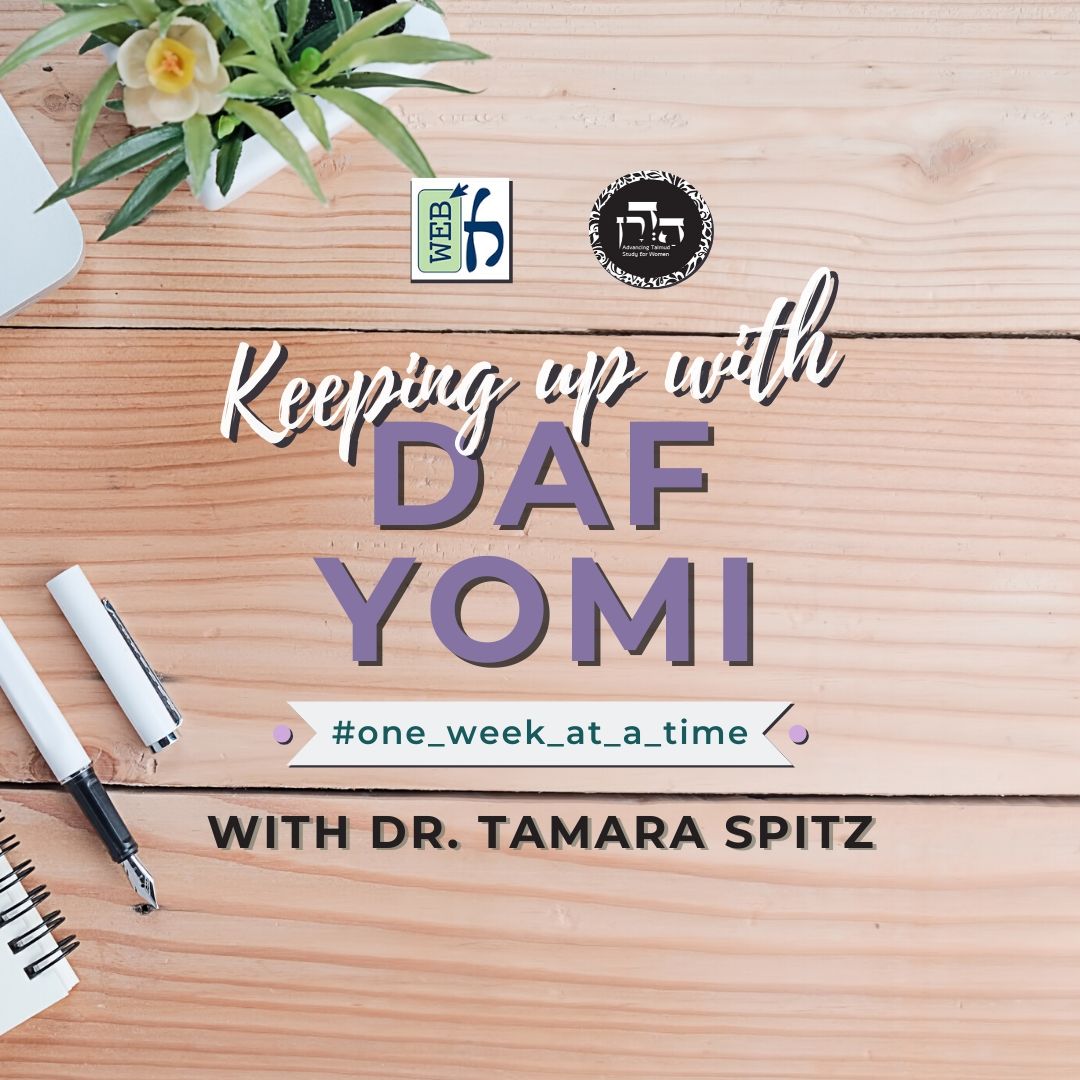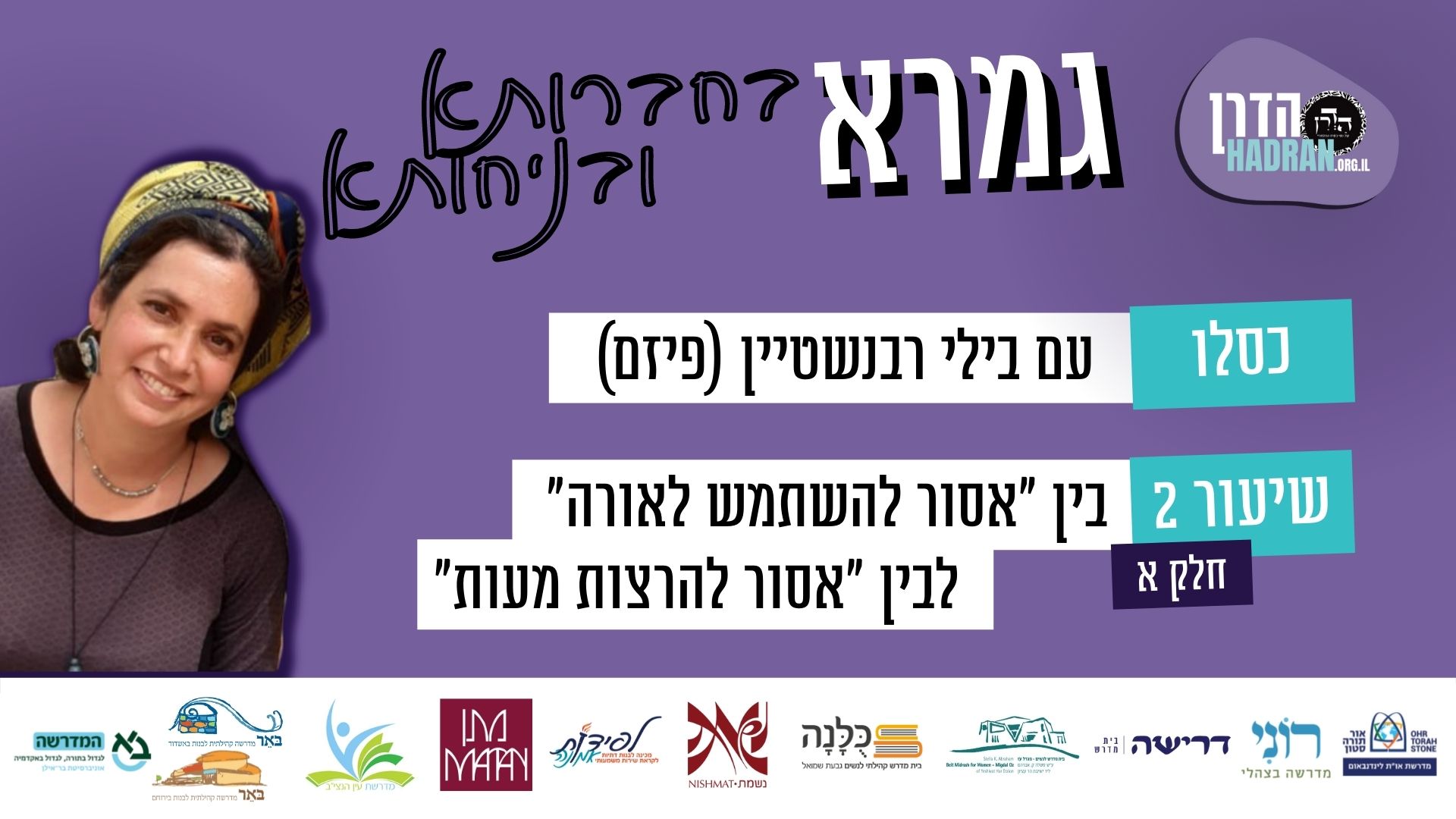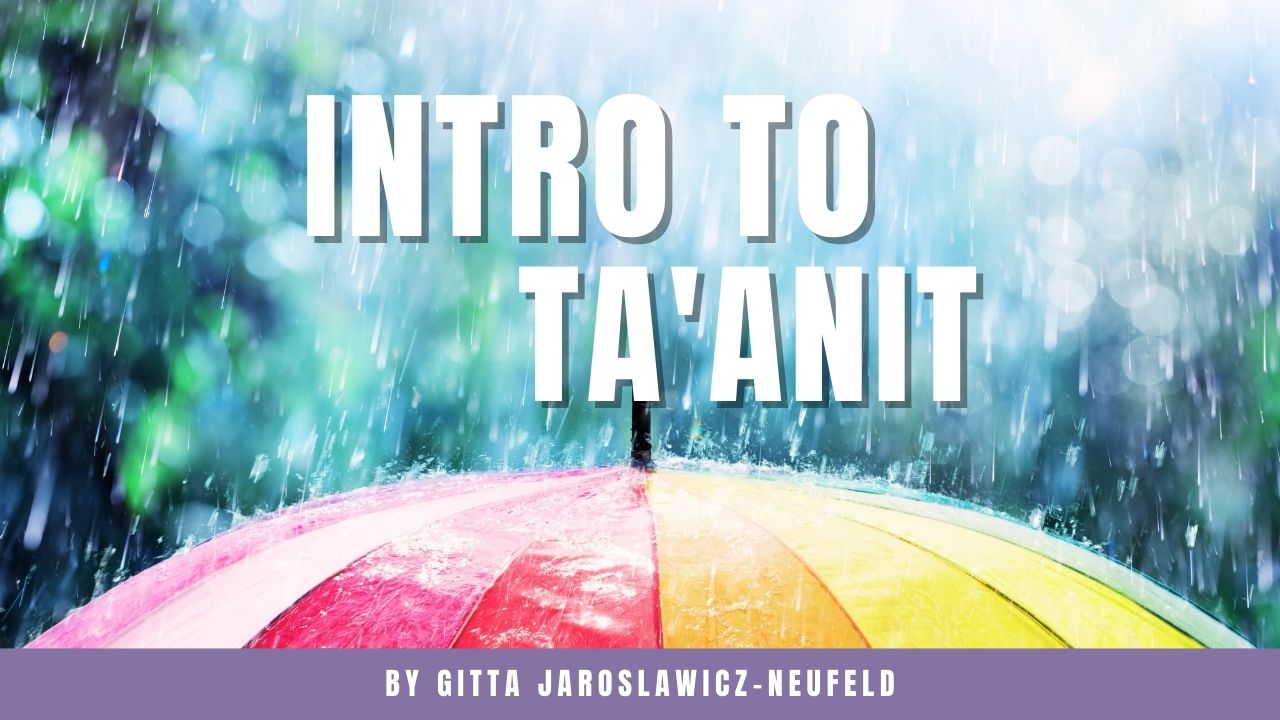Taanit 4
Share this shiur:
This month’s learning is sponsored by Beth Balkany in honor of their granddaughter, Devorah Chana Serach Eichel. “May she grow up to be a lifelong learner.”
This month’s learning is dedicated in memory of Rabbi Dr. Raymond Harari z”l, on his 1st yahrzeit. As an educator, principal of Yeshiva of Flatbush, and community rabbi, he inspired thousands with his wisdom, warmth, and unwavering commitment to Torah.
Want to dedicate learning? Get started here:


Summary
<p>The Gemara mentions several different statements regarding Talmudic scholars. In another statement, we are told that there were three people who asked something inappropriately of God. Two were answered fairly and one unfairly – Eliezer the servant of Avraham and Shaul in the battle with Goliath, and Yiftach. What could Yiftach have done to save his daughter? A verse is brought to emphasize that God never intended for Yiftach to slaughter his daughter. Another rabbis says that the Jewish people also asked inappropriately on two occasions. They asked that God be like the rain, which isn’t always good (as in the summer months). They were answered fairly that God will be to them like dew which is a blessing all year round. There was a second request as well. Are the times for requesting rain and praising God about rain the same? This is an issue that is not one hundred percent clear. There is a contradiction in the words of Rabbi Yehuda between our Mishna and the next Mishna. In our Mishna it is written that we stop mentioning rain on the first day of Pesach. In the next Mishna it says we stop asking for rain at the end of Pesach. The Gemara brings four resolutions but rejects three of them and concludes that these are two different traditions about what Rabbi Yehuda said. It was said that Rabbi Yochanan ruled like Rabbi Yehuda, that we mention rain on Shmini Atzeret. This contradicts his student, Rabbi Elazar, who ruled like Rabban Gamliel that we ask for rain on the 7th of Marcheshvan. Is this really a contradiction? And if so, how can it be resolved? Outside of Israel when the eighth day of Shmini Atzeret is possibly the 7th day of Sukkot, when do we mention rains in our prayer?
Today’s daily daf tools:
This month’s learning is sponsored by Beth Balkany in honor of their granddaughter, Devorah Chana Serach Eichel. “May she grow up to be a lifelong learner.”
This month’s learning is dedicated in memory of Rabbi Dr. Raymond Harari z”l, on his 1st yahrzeit. As an educator, principal of Yeshiva of Flatbush, and community rabbi, he inspired thousands with his wisdom, warmth, and unwavering commitment to Torah.
Today’s daily daf tools:
Delve Deeper
Broaden your understanding of the topics on this daf with classes and podcasts from top women Talmud scholars.
New to Talmud?
Check out our resources designed to help you navigate a page of Talmud – and study at the pace, level and style that fits you.
The Hadran Women’s Tapestry
Meet the diverse women learning Gemara at Hadran and hear their stories.
Taanit 4
עוּרְפִּילָא — אֲפִילּוּ לְפַרְצִידָא דְּתוּתֵי קָלָא מַהְנְיָא לֵיהּ. מַאי עוּרְפִּילָא — עוּרוּ פִּילֵי. וְאָמַר רָבָא: הַאי צוּרְבָּא מֵרַבָּנַן דָּמֵי לְפַרְצִידָא דְּתוּתֵי קָלָא, דְּכֵיוָן דִּנְבַט — נְבַט.
and drizzle [urpila] is even beneficial to a seed [partzida] under a clod of earth, as it can reach anywhere without causing any harm. The Gemara asks: What is the meaning of the word drizzle? The Gemara explains: It is a contraction of the phrase: Arise, furrows [uru pilei]. And the Gemara cites another saying in which Rava uses the same imagery. Rava said: This Torah scholar [tzurva] is like a seed under a clod of earth, as once he sprouts and begins to develop, he continues to sprout and his greatness increases.
וְאָמַר רָבָא: הַאי צוּרְבָּא מֵרַבָּנַן דְּרָתַח — אוֹרָיְיתָא הוּא דְקָא מַרְתְּחָא לֵיהּ, שֶׁנֶּאֱמַר: ״הֲלוֹא כֹה דְבָרִי כָּאֵשׁ נְאֻם ה׳״, וְאָמַר רַב אָשֵׁי: כׇּל תַּלְמִיד חָכָם שֶׁאֵינוֹ קָשֶׁה כַּבַּרְזֶל — אֵינוֹ תַּלְמִיד חָכָם, שֶׁנֶּאֱמַר: ״וּכְפַטִּישׁ יְפֹצֵץ סָלַע״.
§ And, incidentally, the Gemara relates that which Rava said: This Torah scholar who grows angry, it can be presumed that it is his Torah study that angers him. Therefore, he must be given the benefit of the doubt, as it is stated: “Is not my word like fire, says the Lord” (Jeremiah 23:29). And similarly, Rav Ashi said: Any Torah scholar who is not as hard as iron, but is indecisive and wavers, he is not a Torah scholar, as it is stated in the same verse: “And as a hammer that breaks rock in pieces” (Jeremiah 23:29).
אֲמַר לֵיהּ רַבִּי אַבָּא לְרַב אָשֵׁי: אַתּוּן, מֵהָתָם מַתְנִיתוּ לַהּ. אֲנַן, מֵהָכָא מַתְנֵינַן לַהּ, דִּכְתִיב: ״אֶרֶץ אֲשֶׁר אֲבָנֶיהָ בַרְזֶל״, אַל תִּקְרֵי ״אֲבָנֶיהָ״, אֶלָּא בּוֹנֶיהָ. אָמַר רָבִינָא: אֲפִילּוּ הָכִי, מִיבְּעֵי לֵיהּ לְאִינִישׁ לְמֵילַף נַפְשֵׁיהּ בְּנִיחוּתָא, שֶׁנֶּאֱמַר: ״וְהָסֵר כַּעַס מִלִּבֶּךָ וְגוֹ׳״.
Rabbi Abba said to Rav Ashi: You learned the proof for this idea from that verse there; we learned it from here, as it is written: “A land whose stones [avaneha] are iron” (Deuteronomy 8:9). Do not read this phrase as “whose stones [avaneha],” rather, read it as whose builders [boneha], since Torah scholars build the land spiritually and are as tough as iron. With regard to these statements praising the toughness of a Torah scholar, Ravina said: And even so, one is required to teach himself to act gently, as it is stated: “And remove anger from your heart, and put away evil from your flesh” (Ecclesiastes 11:10).
אָמַר רַבִּי שְׁמוּאֵל בַּר נַחְמָנִי אָמַר רַבִּי יוֹנָתָן: שְׁלֹשָׁה שָׁאֲלוּ שֶׁלֹּא כַּהוֹגֶן, לִשְׁנַיִם הֱשִׁיבוּהוּ כַּהוֹגֶן, לְאֶחָד הֱשִׁיבוּהוּ שֶׁלֹּא כַּהוֹגֶן. וְאֵלּוּ הֵן: אֱלִיעֶזֶר עֶבֶד אַבְרָהָם, וְשָׁאוּל בֶּן קִישׁ, וְיִפְתָּח הַגִּלְעָדִי.
As a preamble to the statement of Rabbi Berekhya, below, the Gemara cites that which Rabbi Shmuel bar Naḥmani said that Rabbi Yonatan said: Three people entreated God in an unreasonable manner, i.e., in situations where their requests might have received an unfavorable answer. To two of them God responded reasonably, with a favorable response to their requests, and to one God responded unreasonably, i.e., unfavorably, in a manner befitting the unreasonable request. And they are: Eliezer, servant of Abraham; Saul, son of Kish; and Jephthah the Gileadite.
אֱלִיעֶזֶר עֶבֶד אַבְרָהָם — דִּכְתִיב: ״וְהָיָה הַנַּעֲרָה אֲשֶׁר אֹמַר אֵלֶיהָ הַטִּי נָא כַדֵּךְ וְגוֹ׳״, יָכוֹל אֲפִילּוּ חִיגֶּרֶת, אֲפִילּוּ סוֹמָא. הֵשִׁיבוּ כַּהוֹגֶן, וְנִזְדַּמְּנָה לוֹ רִבְקָה.
The Gemara clarifies each of these cases in turn: With regard to Eliezer, servant of Abraham, he made a request when he prayed beside the well, as it is written: “That the maiden to whom I shall say: Please let down your pitcher that I may drink; and she shall say: Drink, and I will also give your camels to drink; that she be the one whom you have appointed for your servant Isaac” (Genesis 24:14). Eliezer entreated God unreasonably, as his request allowed for the possibility that she might even be lame or even blind, and yet he had promised to take her to Isaac. Nevertheless, God responded to him reasonably and the eminently suitable Rebecca happened to come to him.
שָׁאוּל בֶּן קִישׁ — דִּכְתִיב: ״וְהָיָה הָאִישׁ אֲשֶׁר יַכֶּנּוּ יַעְשְׁרֶנּוּ הַמֶּלֶךְ עֹשֶׁר גָּדוֹל וְאֶת בִּתּוֹ יִתֶּן לוֹ״, יָכוֹל אֲפִילּוּ עֶבֶד, אֲפִילּוּ מַמְזֵר. הֵשִׁיבוּ כַּהוֹגֶן, וְנִזְדַּמֵּן לוֹ דָּוִד.
With regard to Saul, son of Kish, he made an offer when Goliath the Philistine challenged the Jews, as it is written: “And it shall be that the man who kills him, the king will enrich him with great riches, and will give him his daughter” (I Samuel 17:25). The man who killed Goliath might even have been a slave or a mamzer, one born from an incestuous or adulterous union, who would be unfit to marry his daughter. Nevertheless, God responded to him reasonably and David happened to come to him.
יִפְתַּח הַגִּלְעָדִי — דִּכְתִיב: ״וְהָיָה הַיּוֹצֵא אֲשֶׁר יֵצֵא מִדַּלְתֵי בֵיתִי וְגוֹ׳״, יָכוֹל אֲפִילּוּ דָּבָר טָמֵא. הֵשִׁיבוּ שֶׁלֹּא כַּהוֹגֶן, נִזְדַּמְּנָה לוֹ בִּתּוֹ.
By contrast, there is the case of Jephthah the Gileadite. Upon leaving for battle he issued a statement, as it is written: “Then it shall be that whatever comes forth from the doors of my house to meet me when I return in peace…it shall be to the Lord and I will bring it up for a burnt-offering” (Judges 11:31). This might even have been an impure, non-kosher animal, which he had committed himself to sacrifice. In this instance, God responded to him unreasonably, and his daughter happened to come to him.
וְהַיְינוּ דְּקָאָמַר לְהוּ נָבִיא לְיִשְׂרָאֵל: ״הַצֳרִי אֵין בְּגִלְעָד אִם רֹפֵא אֵין שָׁם״.
Regarding the incident of Jephthah, the Gemara remarks: And this is what the prophet said to the Jewish people: “Is there no balm in Gilead? Is there no physician there? Why then has the health of the daughter of my people not recovered?” (Jeremiah 8:22). This verse alludes to the fact that had he sought a means to do so, Jephthah could have had his vow annulled.
וּכְתִיב: ״אֲשֶׁר לֹא צִוִּיתִי וְלֹא דִבַּרְתִּי וְלֹא עָלְתָה עַל לִבִּי״,
And it is written, with regard to human sacrifice: “And they have also built the high places of the Ba’al, to burn their sons in the fire for burnt offerings to Ba’al, which I did not command, and I did not speak, nor did it come into My heart” (Jeremiah 19:5).
״אֲשֶׁר לֹא צִוֵּיתִי״ — זֶה בְּנוֹ שֶׁל מֵישַׁע מֶלֶךְ מוֹאָב, שֶׁנֶּאֱמַר: ״וַיִּקַּח אֶת בְּנוֹ הַבְּכוֹר אֲשֶׁר יִמְלֹךְ תַּחְתָּיו וַיַּעֲלֵהוּ עֹלָה״; ״וְלֹא דִבַּרְתִּי״ — זֶה יִפְתָּח; ״וְלֹא עָלְתָה עַל לִבִּי״ — זֶה יִצְחָק בֶּן אַבְרָהָם.
The Gemara interprets each phrase of this verse: “Which I did not command,” this is referring to the son of Mesha, king of Moab. King Mesha sacrificed his son, as it is stated: “Then he took his firstborn son, who would reign after him, and he offered him as a burnt-offering” (II Kings 3:27). “And I did not speak,” this is referring to Jephthah, who sacrificed his daughter as an offering. “Nor did it come into my heart,” this is referring to Isaac, son of Abraham. Although God commanded Abraham to sacrifice Isaac, there was no intent in God’s heart that he should actually do so; it was merely a test.
אָמַר רַבִּי בֶּרֶכְיָה: אַף כְּנֶסֶת יִשְׂרָאֵל שָׁאֲלָה שֶׁלֹּא כַּהוֹגֶן, וְהַקָּדוֹשׁ בָּרוּךְ הוּא הֱשִׁיבָהּ כַּהוֹגֶן, שֶׁנֶּאֱמַר: ״וְנֵדְעָה נִרְדְּפָה לָדַעַת אֶת ה׳ כְּשַׁחַר נָכוֹן מֹצָאוֹ וְיָבוֹא כַגֶּשֶׁם לָנוּ״,
§ In light of the above statement, the Gemara returns to the issue of rain. Rabbi Berekhya said: The Congregation of Israel also entreated God unreasonably, and yet the Holy One, Blessed be He, responded reasonably, as it is stated: “And let us know, eagerly strive to know the Lord. His going forth is sure as the morning, and He will come to us as the rain” (Hosea 6:3). They compared the revelation of God to the rain.
אָמַר לָהּ הַקָּדוֹשׁ בָּרוּךְ הוּא: בִּתִּי, אַתְּ שׁוֹאֶלֶת דָּבָר שֶׁפְּעָמִים מִתְבַּקֵּשׁ וּפְעָמִים אֵינוֹ מִתְבַּקֵּשׁ, אֲבָל אֲנִי אֶהְיֶה לָךְ דָּבָר הַמִּתְבַּקֵּשׁ לְעוֹלָם, שֶׁנֶּאֱמַר: ״אֶהְיֶה כַטַּל לְיִשְׂרָאֵל״.
In response, the Holy One, Blessed be He, said to the Jewish people: My daughter, you request the manifestation of My Presence by comparing Me to a matter, rain, that is sometimes desired, but is sometimes undesired, e.g., during the summer. However, I will be to you like a matter that is always desired, dew, as it is stated: “I will be as the dew to Israel” (Hosea 14:6), since dew appears in all seasons and is invariably a blessing.
וְעוֹד שָׁאֲלָה שֶׁלֹּא כַּהוֹגֶן, אָמְרָה לְפָנָיו: רִבּוֹנוֹ שֶׁל עוֹלָם! ״שִׂימֵנִי כַחוֹתָם עַל לִבֶּךָ כַּחוֹתָם עַל זְרוֹעֶךָ״, אָמַר לָהּ הַקָּדוֹשׁ בָּרוּךְ הוּא: בִּתִּי, אַתְּ שׁוֹאֶלֶת דָּבָר שֶׁפְּעָמִים נִרְאֶה וּפְעָמִים אֵינוֹ נִרְאֶה, אֲבָל אֲנִי אֶעֱשֶׂה לָךְ דָּבָר שֶׁנִּרְאֶה לְעוֹלָם, שֶׁנֶּאֱמַר: ״הֵן עַל כַּפַּיִם חַקֹּתִיךְ״.
And the Congregation of Israel further entreated God unreasonably in another context, saying before Him: Master of the Universe: “Set me as a seal upon Your heart, as a seal upon Your arm” (Song of Songs 8:6). The Holy One, Blessed be He, said to her: My daughter, you ask that I be manifest to you in a matter that is sometimes visible and sometimes not visible, as the heart and arm are not covered. However, I will act so that I manifest Myself for you like a matter that is always visible, as it is stated: “Behold, I have engraved you on the palms of My hands, your walls are continually before me” (Isaiah 49:16).
אֵין שׁוֹאֲלִין אֶת הַגְּשָׁמִים כּוּ׳. סַבְרוּהָ: שְׁאֵלָה וְהַזְכָּרָה חֲדָא מִילְּתָא הִיא, מַאן תַּנָּא? אָמַר רָבָא: רַבִּי יְהוֹשֻׁעַ הִיא, דְּאָמַר מִשְּׁעַת הַנָּחָתוֹ.
§ The Gemara returns to the halakhot of the mishna: One requests rain only immediately preceding the rainy season. The Sages assumed that requesting and mentioning are one and the same thing, and consequently they asked: Who is the tanna who taught this halakha? The Gemara answers that Rava said: It is in accordance with the opinion of Rabbi Yehoshua, who said that one mentions rain from the time of putting down the lulav, i.e., the Eighth Day of Assembly, which is indeed near the rainy season.
אֲמַר לֵיהּ אַבָּיֵי: אֲפִילּוּ תֵּימָא רַבִּי אֱלִיעֶזֶר — שְׁאֵלָה לְחוּד, וְהַזְכָּרָה לְחוּד.
Abaye said to him: Even if you say that it is in accordance with the opinion of Rabbi Eliezer, who holds that one mentions rain from the first day of the festival of Sukkot, this ruling of the mishna can be explained by distinguishing between the two terms: Requesting is a discrete concept and mentioning is another discrete concept. In other words, even according to the opinion of Rabbi Eliezer, one begins to request rain just before the rainy season, on the Eighth Day of Assembly, whereas one starts to mention rain already on the first day of Sukkot.
וְאִיכָּא דְאָמְרִי: לֵימָא
And some say a different version of this discussion: Let us say
רַבִּי יְהוֹשֻׁעַ הִיא, דְּאָמַר מִשְּׁעַת הַנָּחָתוֹ?! אָמַר רָבָא: אֲפִילּוּ תֵּימָא רַבִּי אֱלִיעֶזֶר — שְׁאֵלָה לְחוּד, וְהַזְכָּרָה לְחוּד.
that our mishna is in accordance with the opinion of Rabbi Yehoshua, who said that one mentions rain from the time of putting the lulav down, from the Eighth Day of Assembly, and it is not in accordance with the opinion of Rabbi Eliezer. Rava said: Even if you say that the ruling of the mishna is in accordance with the opinion of Rabbi Eliezer, one can explain this by distinguishing between the terms: Requesting is a distinct notion and mentioning is another distinct notion, even according to the opinion of Rabbi Eliezer.
רַבִּי יְהוּדָה אוֹמֵר: הָעוֹבֵר לִפְנֵי הַתֵּיבָה כּוּ׳.
§ The mishna stated that Rabbi Yehuda says: With regard to the one who passes before the ark as prayer leader on the concluding Festival day of Sukkot, the Eighth Day of Assembly, the prayer leader of the additional prayer mentions rain, while the leader of the morning prayer does not. The reverse is the case at the conclusion of the period of mentioning rain, as the leader of the morning prayer mentions rain, while the one who leads the additional prayer does not.
וּרְמִינְהוּ: עַד מָתַי שׁוֹאֲלִין אֶת הַגְּשָׁמִים, רַבִּי יְהוּדָה אוֹמֵר: עַד שֶׁיַּעֲבוֹר הַפֶּסַח, רַבִּי מֵאִיר אוֹמֵר: עַד שֶׁיַּעֲבוֹר נִיסָן.
And the Gemara raises a contradiction from a baraita (5a): Until when does one request rain? Rabbi Yehuda says: Until Passover has passed. Rabbi Meir says: Until the month of Nisan has passed. According to the baraita, Rabbi Yehuda holds that one prays for rain until the end of Passover, whereas the mishna states that Rabbi Yehuda’s opinion is that one prays for rain only until the beginning of the Festival.
אָמַר רַב חִסְדָּא, לָא קַשְׁיָא: כָּאן לִשְׁאוֹל, כָּאן לְהַזְכִּיר. מִישְׁאָל — שָׁאֵיל וְאָזֵיל, לְהַזְכִּיר — בְּיוֹם טוֹב הָרִאשׁוֹן פָּסֵיק.
Rav Ḥisda said: This is not difficult. The baraita here is referring to the request for rain, which continues until the end of Passover, whereas the mishna there rules that one is to mention rain only until the first Festival day. In other words, Rabbi Yehuda holds that one continues requesting rain until the end of Passover, but with regard to the mention of rain, already on the first day of the Festival one ceases to do so.
אָמַר עוּלָּא: הָא דְּרַב חִסְדָּא קַשְׁיָא כַּחֹמֶץ לַשִּׁנַּיִם וְכֶעָשָׁן לָעֵינָיִם. וּמָה בִּמְקוֹם שֶׁאֵינוֹ שׁוֹאֵל — מַזְכִּיר, בִּמְקוֹם שֶׁשּׁוֹאֵל, אֵינוֹ דִּין שֶׁיְּהֵא מַזְכִּיר?
The Gemara raises a difficulty against this answer. Ulla said: That which Rav Ḥisda said is as difficult to accept “as vinegar to the teeth, and as smoke to the eyes” (Proverbs 10:26). He elaborates: If when one does not yet request rain, at the beginning of the rainy season, one nevertheless mentions rain; in a case when one requests rain, i.e., during Passover, according to this explanation, is it not right that one should also mention rain?
אֶלָּא אָמַר עוּלָּא: תְּרֵי תַנָּאֵי אַלִּיבָּא דְּרַבִּי יְהוּדָה.
Rather, Ulla said an alternative resolution: In fact, two tanna’im expressed different rulings in accordance with the opinion of Rabbi Yehuda. According to one tanna, Rabbi Yehuda holds that one both mentions and requests rain during Passover, whereas according to the other tanna, Rabbi Yehuda holds that one neither mentions nor requests rain after the morning prayer of the first day of Passover.
רַב יוֹסֵף אָמַר: מַאי ״עַד שֶׁיַּעֲבוֹר הַפֶּסַח״ — עַד שֶׁיַּעֲבוֹר שְׁלִיחַ צִבּוּר רִאשׁוֹן הַיּוֹרֵד בְּיוֹם טוֹב רִאשׁוֹן שֶׁל פֶּסַח.
The Gemara cites an additional resolution of the apparent contradiction. Rav Yosef said: What is the meaning of the phrase: Until Passover has passed [ya’avor]? It means: Until the first prayer leader who descends to pray has passed before the ark for the morning prayers on the first Festival day of Passover. According to this explanation, the mishna and baraita specify the same time period for the end of the mention and request for rain.
אֲמַר לֵיהּ אַבָּיֵי: שְׁאֵלָה בְּיוֹם טוֹב מִי אִיכָּא?
Abaye said to Rav Yosef: Is there a request for rain on a Festival? The request for rain is included in the ninth blessing of the Amida, the blessing of the years, which is not recited on Shabbat and Festivals. If the term Passover in the baraita is referring to the entire Festival, this includes the intermediate Festival days, during which the ninth blessing of the Amida is recited. However, according to your interpretation, the baraita refers only to the first day of the Festival, and yet the request for rain is not recited on this date.
אֲמַר לֵיהּ: אִין שׁוֹאֵל מְתוּרְגְּמָן. וְכִי מְתוּרְגְּמָן שׁוֹאֵל דָּבָר שֶׁאֵינוֹ צָרִיךְ לַצִּבּוּר? אֶלָּא מְחַוַּורְתָּא, כִּדְעוּלָּא.
The Gemara cites the response: Rav Yosef said to Abaye: Yes, the baraita is speaking of the first day of Passover. However, it does not refer to the request for rain recited in the Amida. Rather, the disseminator and translator of the Torah portion would recite a request for rain after the Festival prayers. The Gemara asks: But would a disseminator request a matter that the community does not need? As there is no need for rain on Passover, why would the disseminator recite a request for it? Rather, it is clear, as Ulla explained, there are two tannaitic versions of Rabbi Yehuda’s opinion.
רַבָּה אָמַר: מַאי ״עַד שֶׁיַּעֲבוֹר הַפֶּסַח״ — עַד שֶׁיַּעֲבוֹר זְמַן שְׁחִיטַת הַפֶּסַח. וְכִתְחִילָּתוֹ כֵּן סוֹפוֹ: מָה תְּחִילָּתוֹ — מַזְכִּיר אַף עַל פִּי שֶׁאֵינוֹ שׁוֹאֵל, אַף סוֹפוֹ — מַזְכִּיר אַף עַל פִּי שֶׁאֵינוֹ שׁוֹאֵל.
Rabba said another explanation: What is the meaning of the phrase: Until Passover has passed? It means until after the time for the slaughter of the Paschal lamb has passed, the afternoon of the fourteenth of Nisan, i.e., until the beginning of Passover. And according to this opinion, the practice at the beginning of the time for praying for rain is like that of the end: Just as at the beginning of the rainy season one mentions rain although one does not request it, so too, at the end, on the first day of Passover, one mentions rain although one does not request it. The request for rain ends on the eve of Passover, while the mention of rain continues until the morning service the following day.
אֲמַר לֵיהּ אַבָּיֵי: בִּשְׁלָמָא תְּחִילָּתוֹ מַזְכִּיר — הַזְכָּרָה נָמֵי רִיצּוּי שְׁאֵלָה הִיא, אֶלָּא סוֹפוֹ, מַאי רִיצּוּי שְׁאֵלָה אִיכָּא? אֶלָּא מְחַוַּורְתָּא כִּדְעוּלָּא.
Abaye said to Rabba: Granted, at the beginning of the rainy season one mentions rain before requesting it, as mentioning rain is also an appeasement to God in advance of the forthcoming request. However, at the end of the season, what appeasement toward a request is there that would necessitate the mention of rain after one has ceased requesting it? The Gemara again concludes: Rather, it is clear as Ulla explained.
אָמַר רַבִּי אַסִּי אָמַר רַבִּי יוֹחָנָן: הֲלָכָה כְּרַבִּי יְהוּדָה. אֲמַר לֵיהּ רַבִּי זֵירָא לְרַבִּי אַסִּי: וּמִי אָמַר רַבִּי יוֹחָנָן הָכִי? וְהָתְנַן: בִּשְׁלֹשָׁה בְּמַרְחֶשְׁווֹן שׁוֹאֲלִין אֶת הַגְּשָׁמִים, רַבָּן גַּמְלִיאֵל אוֹמֵר: בְּשִׁבְעָה בּוֹ. וְאָמַר רַבִּי אֶלְעָזָר: הֲלָכָה כְּרַבָּן גַּמְלִיאֵל!
Rabbi Asi said that Rabbi Yoḥanan said: The halakha is in accordance with the opinion of Rabbi Yehuda. Rabbi Zeira said to Rabbi Asi: And did Rabbi Yoḥanan actually say that? But didn’t we learn in a mishna (6a): On the third of Marḥeshvan one starts to request rain. Rabban Gamliel says: One starts on the seventh of Marḥeshvan. And with regard to this mishna, Rabbi Elazar, Rabbi Yoḥanan’s preeminent student, said: The halakha is in accordance with the opinion of Rabban Gamliel.
אֲמַר לֵיהּ: גַּבְרָא אַגַּבְרָא קָא רָמֵית?! אִיבָּעֵית אֵימָא, לָא קַשְׁיָא: כָּאן לִשְׁאוֹל, כָּאן לְהַזְכִּיר.
Rabbi Asi said to Rabbi Zeira: Are you raising a contradiction from the statement of one man against the statement of another man? Although Rabbi Elazar was Rabbi Yoḥanan’s student, their opinions need not be consistent with one another. If you wish, say instead that this is not difficult, as Rabbi Elazar’s ruling here is referring to the request for rain, which begins on the seventh of Marḥeshvan, whereas Rabbi Yoḥanan’s ruling there is referring to the mention of rain, which begins on the Eighth Day of Assembly.
וְהָאָמַר רַבִּי יוֹחָנָן: בִּמְקוֹם שֶׁשּׁוֹאֵל מַזְכִּיר! הָהוּא לְהַפְסָקָה אִיתְּמַר. וְהָאָמַר רַבִּי יוֹחָנָן: הִתְחִיל לְהַזְכִּיר — מַתְחִיל לִשְׁאוֹל, פָּסַק מִלִּשְׁאוֹל — פּוֹסֵק מִלְּהַזְכִּיר.
The Gemara asks: But didn’t Rabbi Yoḥanan say: At the same time when one requests rain, one mentions it. The Gemara answers: That ruling was stated only with regard to ceasing the request and mention of rain. Although Rabbi Yoḥanan maintains that one stops requesting and mentioning rain on the same date, he does not hold that one begins to do both at the same time. The Gemara objects: But didn’t Rabbi Yoḥanan explicitly say: When one begins to mention rain, one begins to request it; and when one ceases to request rain, one ceases to mention it. This clearly indicates that, in his opinion, there is no discrepancy between the dates when one begins reciting the two formulations.
אֶלָּא, לָא קַשְׁיָא: הָא לַן, הָא לְהוּ. מַאי שְׁנָא לְדִידַן — דְּאִית לַן פֵּירֵי בְּדַבְרָא, לְדִידְהוּ נָמֵי אִית לְהוּ עוֹלֵי רְגָלִים!
The Gemara answers: Rather, it is not difficult. This statement, where Rabbi Elazar ruled in accordance with the opinion of Rabban Gamliel, is for us, who live in Babylonia and start to pray for rain later, whereas that statement of the mishna is for them, the residents of Eretz Yisrael. The Gemara asks: What is different with regard to us in Babylonia that we do not request rain immediately after Sukkot? The reason is that we still have fruit in the field. Therefore, we do not want rain to fall. However, they, the inhabitants of Eretz Yisrael, also have pilgrims who need to travel for a significant time to reach their homes after the Festival, and they do not want it to rain on them.
כִּי קָאָמַר רַבִּי יוֹחָנָן, בִּזְמַן שֶׁאֵין בֵּית הַמִּקְדָּשׁ קַיָּים. הַשְׁתָּא דְּאָתֵית לְהָכִי — הָא וְהָא לְדִידְהוּ, וְלָא קַשְׁיָא: כָּאן בִּזְמַן שֶׁבֵּית הַמִּקְדָּשׁ קַיָּים, כָּאן בִּזְמַן שֶׁאֵין בֵּית הַמִּקְדָּשׁ קַיָּים.
The Gemara answers: When Rabbi Yoḥanan said this ruling in the mishna, he was referring to the period when the Temple is not standing; therefore, in Eretz Yisrael, one can immediately request rain. The Gemara comments: Now that you have arrived at this answer, one can say that both this statement and that statement are for them, i.e., those in Eretz Yisrael. And yet, it is not difficult, as this statement here, that one waits before requesting rain, applies at the time when the Temple is standing, while the ruling there, that one requests rain right after the Festival, is referring to the time when the Temple is not standing.
וַאֲנַן דְּאִית לַן תְּרֵי יוֹמֵי, הֵיכִי עָבְדִינַן? אָמַר רַב: מַתְחִיל בְּמוּסָפִין, וּפוֹסֵק בְּמִנְחָה עַרְבִית וְשַׁחֲרִית, וְחוֹזֵר בְּמוּסָפִין.
The Gemara asks: And we in the Diaspora who have two Festival days, how do we act with regard to beginning the mention of rain, given the uncertainty concerning the Eighth Day of Assembly, which might in reality be the seventh day of Sukkot? The Gemara answers that Rav said: One begins to mention rain in the additional prayers of the eighth day, the first day of the Eighth Day of Assembly. And one temporarily ceases this practice on the afternoon prayer of the eighth day, continuing through the evening and morning prayers of the ninth day, the second day of the Eighth Day of Assembly. And finally one again resumes mentioning rain in the additional prayers of the ninth day, Simḥat Torah.
אֲמַר לְהוּ שְׁמוּאֵל, פּוּקוּ וֶאֱמַרוּ לֵיהּ לְאַבָּא: אַחַר שֶׁעֲשִׂיתוֹ קוֹדֶשׁ תַּעֲשֵׂהוּ חוֹל? אֶלָּא אָמַר שְׁמוּאֵל: מַתְחִיל בְּמוּסָפִין וּבְמִנְחָה, וּפוֹסֵק עַרְבִית וְשַׁחֲרִית, וְחוֹזֵר וּמַתְחִיל בְּמוּסָפִין.
Shmuel said to those who reported Rav’s explanation to him: Go out and tell Abba, referring to Rav by his name, the following objection: After you have rendered the first day of the Eighth Day of Assembly sanctified, shall you defile it by treating it as though it is not a Festival day? Rather, Shmuel said (10a): One begins to mention rain in the additional prayers and also mentions it in the afternoon prayer of the eighth day, the first day of the Eighth Day of Assembly, and temporarily ceases this practice on the afternoon prayer of the eighth day, continuing through the evening and morning prayers of the ninth day, Simḥat Torah. And finally, one again resumes mentioning rain in the additional prayers of the ninth day, Simḥat Torah.


